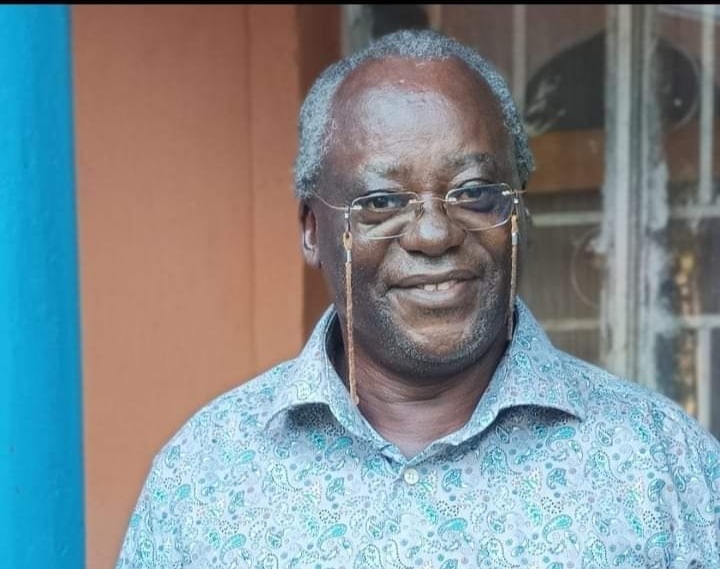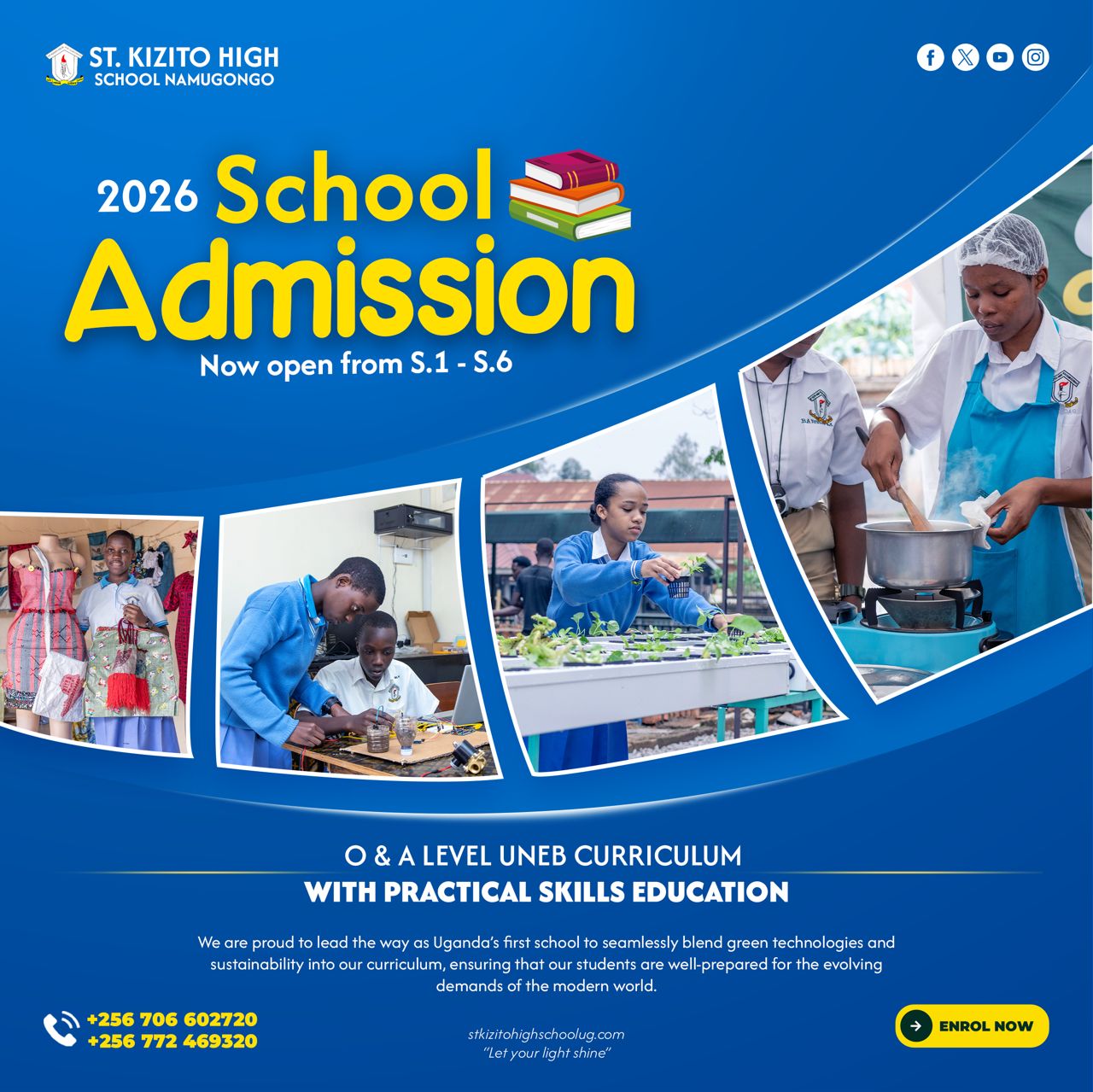The Educated Fools of Uganda: By Oweyegha Afunaduula

The term ‘education’ has been defined variously in different contexts. In a narrow sense, it is limited to formal instruction received in schools, colleges and universities. So, anyone who goes to educational institutions to get degrees or to acquire academic qualifications is considered an educated person.
But as Albert P Rayan (2022) writes in his article “What is a truly educated Person?” Education is not the mere acquisition of knowledge and skills. Instead, it is about thinking creatively and critically, and responding positively to society’s challenges.
Latwell Nyangu (2023).in his article “Let’s not be educated fools”, adds that “education does not mean that the person [with it] is wise. Today education just means that you must have your degree. You just have to memorize certain concepts written in the book, write it in the examination and that’s all: You are educated now. As a result, we often see many educated fools…. We need wisdom to discern in many realities we come across. An educated person knows how to make productive use of knowledge; they know where to get the knowledge that they need; and they have the ability to organize that knowledge into a plan of action that is directed to a definite end”.
In my recent article (Oweyegha-Afunaduula, 2022), “Transition for Disciplinarily-Educated to Transdisciplinarily-Educated Persons”, I wrote:
“Who is an educated person”? is a question that seemed to be settled. We almost certainly agree that an educated person has gone through pre-primary, primary, secondary, and higher school and then entered university and earned one or more degrees. Anyone who did not was considered uneducated. Almost, unsurprisingly, such an educated individual was just disciplined.
That was the standard in education before and during the 20th century, but in the early 1970s, skepticism of the disciplinary approach as the only way to educate developed. Discipliners immediately accommodated multidisciplinary education to engage in multidisciplinary research and education and develop multidisciplinary learners… People with multidisciplinary education, however, do not question disciplinary education. With increased knowledge generation within and beyond fields of specialization, the concept of “an educated person” is being rethought. Someone who can think, rethink, reason, develop information, write, participate in critical thinking and analysis, or teach and learn across arbitrary academic lines is educated. New knowledge production systems or cultures include interdisciplinarity, crossdisciplinarity, transdisciplinarity, and extradisciplinarity”.
Therefore, the educated is no longer seen exclusively in disciplinary terms although the disciplinarians still dominate our university campus academic environments and professionalism. They are the ones who believe to be called educated it must be them or never.
Latwell Nyangu (2023), in his article in The Herald titled “Let’s Not Be educated fools,” gave the following simple definition of educated fools: “An educated fool is a paradoxon, which describes a well-educated person who has trouble dealing with everyday situation or socializing. Although he may be very intelligent, he often ends up in awkward situations due to him acting “foolish”.
Have you heard of a song by Iron Maiden titled “The Educated Fool”? Whether or not you have, it exists. Its Lyrics make good reading and evoke reflection.
The song was written by Steve Harris. In summary, the educated fool just follows as time flows. His or education does not cause him or her to lead, influence and bring about desired change. Iron Maiden Bulgaria Fan Club summarized the song thus: “The Educated Fool” is about the deep and introspective midlife realization that most people eventually reach, where they begin to realize that their education and ideals are not really relevant to what is important in life.
But the song also seems to be a statement of hope, to put these things into proper perspective and face the ultimate meaning of life (whatever that might be”.
Simply put, educated fools are people who have tons of academic achievements to their credit and are full of bookish knowledge, but have very little practical experience and common sense. They lack real knowledge, wisdom, understanding and insight.
In this article I want to write about the Educated Fools in Uganda most of whom glorify and exalt themselves and act the arrogant vis-avis those they regard as uneducated because they regard them as ignorant. This description of their “uneducated” is based on book knowledge. They ignore the fact that there is also experiential knowledge, which fits those who have it and lack book knowledge directly into their environments and makes them to continue learning to fit in changing circumstances.
One may say those who lack book knowledge have real knowledge. One may even ask “Who is ignorant: One who has book knowledge or experiential knowledge?
The term real knowledge was innovated by Chinese philosopher, Confucius. Real knowledge – according to the great Chinese philosopher, Confucius – is knowing the extent of your own ignorance. The more aware and accepting you are of that which you don’t know, the wiser you become.
Unfortunately educated fools tend to be arrogant and think that what they know in their different disciplines is all that is important to know. They hardly open up to other sources and areas of knowledge at the boundaries between their small knowledge cocoons and beyond.
Klein (1983). says real knowledge is knowledge simpliciter plus a set of requirements which guarantee that the truth, belief and justification conditions are not accidentally conjoined. Two of those requirements have received considerable attention in recent literature by the de-feasibility theorists and the causal theorists. Klein says The concept of knowledge as true, justified belief – what I call knowledge simpliciter – failed to depict the sought after real knowledge because the necessary and jointly sufficient conditions of knowledge simpliciter can be felicitously but accidentally fulfilled.
According to Oxford Reference simpliciter is an adjective Indicating that a word or phrase in a document is used absolutely, unconditionally, and free from any shades of meaning given to it by surrounding words or phrases. We can then say that, to constitute knowledge, a belief must be both true and justified. Note that because of luck, a belief can be unjustified yet true; and because of human fallibility, a belief can be justified yet false. In other words, truth and justification are two independent conditions of beliefs.
There is also what is called true knowledge and genuine knowledge. Which of these types of knowledge do those with book knowledge have?
According to Quora, true knowledge is made up of accurate information, understanding, and wisdom. It involves having a deep grasp of a subject or concept, being able to apply that knowledge in practical situations, and possessing the wisdom to discern how and when to use that knowledge for the greater good.
Human knowledge can be sourced from various sources, including personal experience, observations, experiments, logic, reasoning, intuition, tradition, authority, and testimony from others. However, a common understanding is that real knowledge involves justified true beliefs. This means that for a belief to be considered knowledge, it must be true, the person holding the belief must have good reasons or justification for holding it, and the person must actually believe it to be true (Quora, 2019).
Wang Yangming? held that action was not unified with all knowledge, but only with an elevated form of knowledge, which he sometimes called “genuine knowledge”. I argue for a new interpretation of this notion, according to which genuine knowledge requires freedom from a form of doxastic conflict.
Harvey Lederman’s (2022) article presents a new interpretation of the great Ming dynasty philosopher Wang Yangming’s celebrated doctrine of the “unity of knowledge and action”. Wang held that action was not unified with all knowledge, but only with an elevated form of knowledge, which he sometimes called “genuine knowledge”. Lederman argues for a new interpretation of this notion, according to which genuine knowledge requires freedom from a form of doxastic conflict. He proposes that, in Wang’s view, people are free from this form of doxastic conflict if, and only if, they are acting virtuously. The virtuous, when acting virtuously, act for a variety of reasons that form ranges characteristic of particular virtues. Hursthouse (2001) states that when children, and people who are in a transitory emotional state, act for such reasons they do not count as acting out of a sense of duty, but when the virtuous, who act from a settled state of character, act for such reasons, they do. Acting from virtue is sufficient for acting from duty.
Back to educated fools. Educated fools are so arrogant that they hardly act virtuous. Virtually all of them act unethically and immorally. In Uganda they are found from bottom to top of and across society. They are there in our communities, schools, and universities. They are there in the UPDF and the Uganda Place, both of which are nowadays indistinguishable from one another. They are there in all institutions of government. They despise the poor and needy and do everything possible to deny them quality life -quality education and quality health. They worship their certificates – diplomas and degrees -yet the majority forget reading as soon as they get them and are simply chasing money wherever it can be found.
The immediate post-colonial rulers of Uganda identified poverty, disease and ignorance as the wors enemies of Uganda and Ugandans, but today our educated fools are the reason why these three enemies are proliferating and consummating the majority of Ugandans. The policies of our educated fools are only helping to make fools out of everyone who is “educated” and making him or her hate his or her country.
Many “educated” have been forced by unethical and immoral policies of their fellow educated in power to join the chain of brain drain to go and serve as slaves in other countries, which they see capable of providing them with opportunities, even if as slaves. It is as if their educated colleagues in power want them to do precisely that: flee from there country. In one article I wrote some time back, I wrote that these Ugandans are now benefitting the Ugandan government far more than foreign aid in terms of the money they send back to their country.
It is our educated fools that have ignited fears and tears everywhere in Uganda through the land grabbing they are carrying out as if they will go with the grabbed land to their graves when the life-death-cycle demands that it time for them to enter it.
It is our educated fools that direct scarce financial resources into militarization of the country instead of doing the basic thing: financing social development and creating an enabling environment in which all can experience meaningful and effective development in all its diverse dimensions.
It is our educated fools that have left our once quality schools and hospitals become centres of oppression due to diminished quality services.
It is our educated fools that concentrate on beautifying Kampala City in terms of painting buildings, lighting and roads while the rest of the country is in sorry state simply to make foreign visitors get the impression that Uganda is developed, yet real development is human development.
It is our educated fools that have reversed Uganda’s independence, sovereignty and citizenship and put the country’s future on a trajectory that may disadvantage Ugandans well in the future.
We should thank the educated fools of Uganda for resisting and rejecting the new faith of the West: Homosexuality.
For God and My Country
BIBLIOGRAPHY
Albert P. Rayan (2022). What is a truly educated person? The Hindu https://www.thehindu.com/education/who-is-a-truly-educated-person/article66175998.ece
Harvey Lederman (2022). The Introspective Model of Genuine Knowledge in Wang Yangming Philosophical Review 131 (2):169-213 (2022)
Klein, P.D. Real knowledge. Syntheses 55, 143–164 (1983). https://doi.org/10.1007/BF00485065
Latwell Nyangu (2023). Let’s Not be Educated Fools. The Herald, https://www.herald.co.zw/let-us-not-be-the-educated-fools/#:~:text=Here%20is%20a%20simple%20definition,to%20him%20acting%20%E2%80%9Cfoolish%E2%80%9D. 20 May 2023.
Rosalind Hursthouse (2001). The Virtuous Agent’s Reasons for Action. Chapter 6. Oxford Academic. Oxford Scholarship Online. https://doi.org/10.1093/0199247994.003.0007 Pages121–140 Published: September 2001
Bishnu Prasad Panda (2016 ). What are some of the Best examples of being an educated fool? In:Quora. https://www.google.com/search?q=who+is+an+educated+fool&oq=who+is+an+educated+foo&gs_lcrp=EgZjaHJvbWUqBwgAEAAYgAQyBwgAEAAYgAQyBggBEEUYOTIICAIQABgWGB4yCggDEAAYDxgWGB4yDQgEEAAYhgMYgAQYigUyDQgFEAAYhgMYgAQYigUyDQgGEAAYhgMYgAQYigWoAgCwAgA&sourceid=chrome&ie=UTF-8 February, 26 2016.



